Have you ever said your business-to-business (B2B) company doesn’t need digital marketing, that it’s only something business-to-consumer (B2C) needs? If you have, unfortunately you’re not alone. You’ve probably offered reasons like your customers know who you are, or your buyers already know what they want and don’t need to look online. Or perhaps even the classic “that’s why we pay sales reps”. Without debating the merits of those statements, here’s something else you might want to consider. According to an Accenture study, 94% of B2B buyers conduct online research at some point in the buying process (p4). So if that alone is not enough, here are 3 more reasons.
Buyers control the Buying Process
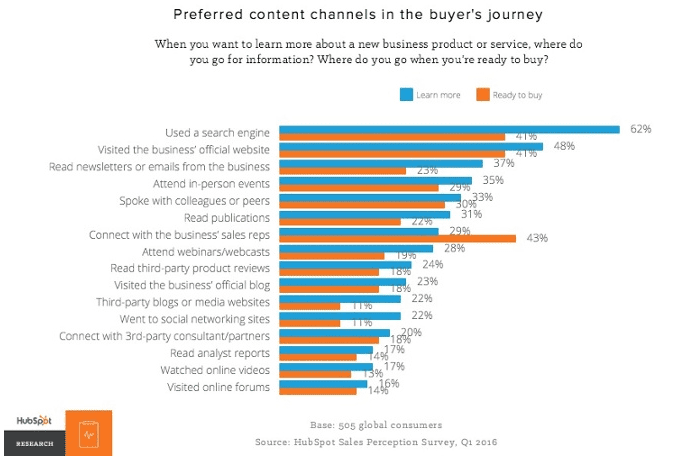
Image Source: Hubspot
Buyers have the means and resources available to conduct extensive research before they contact a sales representative and this is exactly what they do. You can see above, business-to-business buyers turn first to Search and then to company websites as they begin the buyer’s journey. Your company needs to be there and be ready for this.
Buyers Don’t Trust Sales Reps
We know that may come as a surprise to many of you, but it’s true. In fact, according to the Hubspot Sales Perception Survey Q1 2016, less than 7% of buyers find information from people in sales business units to be very trustworthy. So now what? According to a study by Blue Nile Research, buyers turn to customer reviews and case studies, instead. Your company needs to have an effective and comprehensive plan in place to ensure your potential buyers find a compelling story that demonstrates your expertise, experience and results.
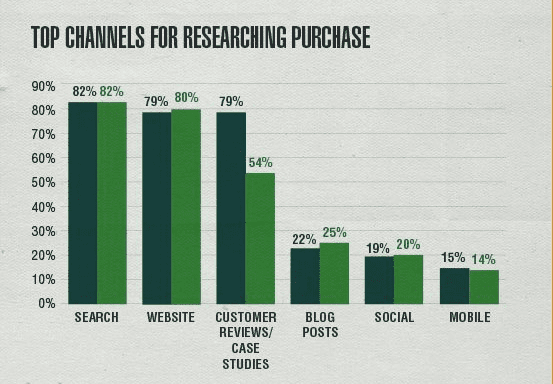
Image Source: Louis Foong
Data Source: Blue Nile
B2B Buyers Don’t Work In A Vacuum
If you believe there is only ONE person making the buying decision, then frankly, you’re being naïve. Even the owner and sole employee of a company are subject to outside stimuli. This person has gatekeepers that will try to block access and he or she will have influencers that, well, have an influence whether they know it or not. This person has friends, customers and suppliers to talk with He or she may even have a significant other that has nothing to do with the business but who supports the same cause or charity that your company does. The point is that many people have access to the decision maker and, consciously or not, often contribute in some way. Through proper research, experience and analytics, you can identify and reach these targets using the appropriate channels.
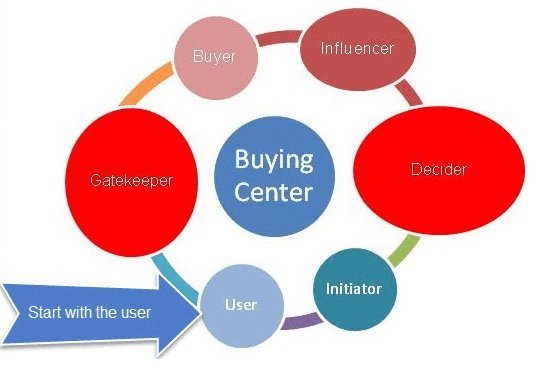
Image courtesy of StratoServe
What it all Means? B2B Companies Need Digital Marketing
It’s fairly simple, really. It comes down to the fact that B2B buyers are people. So, it should be no surprise that their decisions follow a very similar journey as an individual consumer making any significant purchase. The touch points along the journey may vary depending on the product or service, but you can be certain the buyer is conducting research online, searching for solutions and then, a brand that might provide it. The buyer will look at your competitors’ websites. Make sure your website is found, as well. Customer reviews, data sheets, and blogs will be read. Social Media will be scrutinized. If you have a sound strategy, consistent messaging across platforms, and you provide information that saves time and money, your chances of securing a potential customer increase. If you don’t have these things….well, do you really need us to say it? Of course, these are not the only reasons, so let us know your top three. We’d love to hear from you!
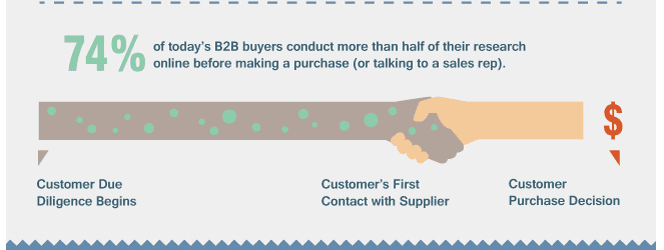
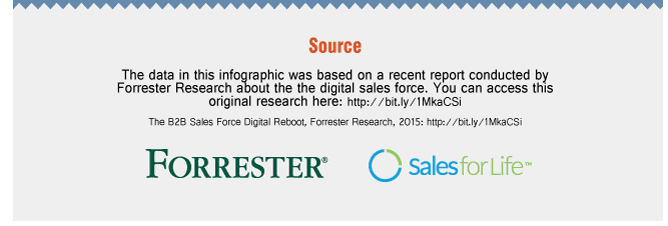
Image Source: MediaFly
Data Source: Forrester

